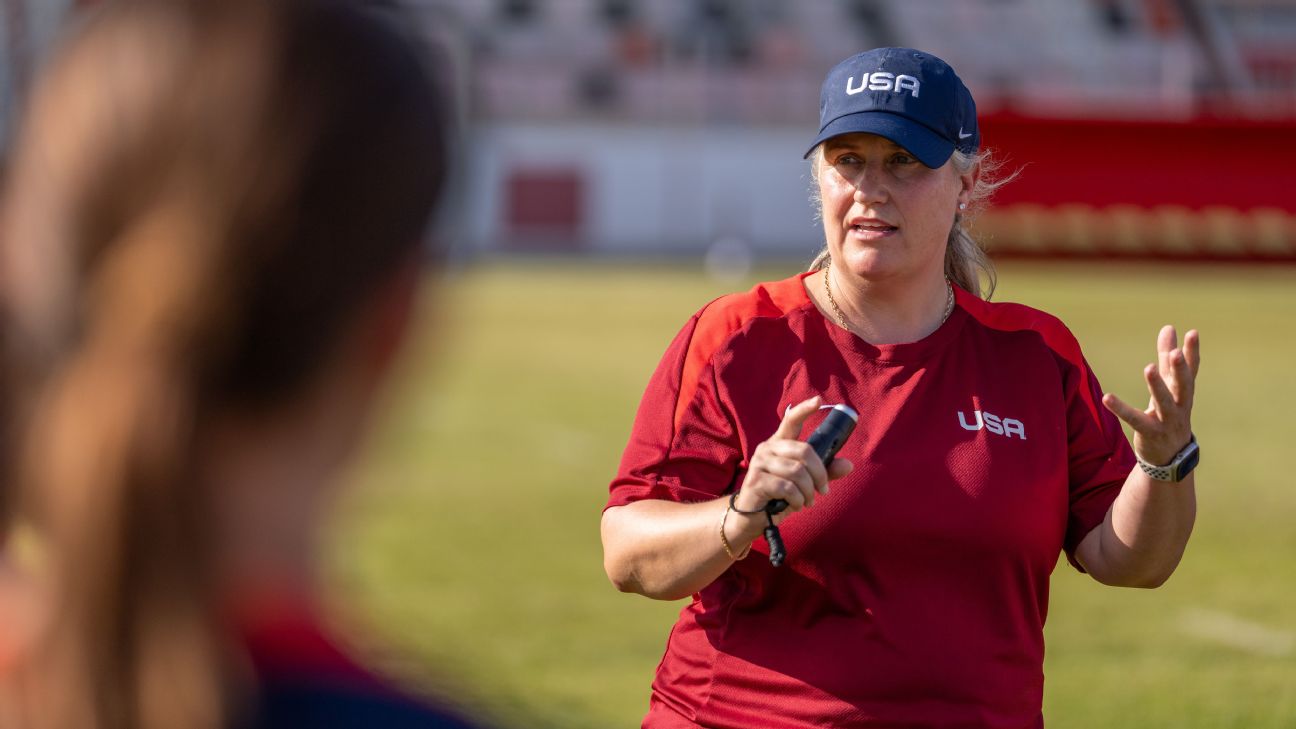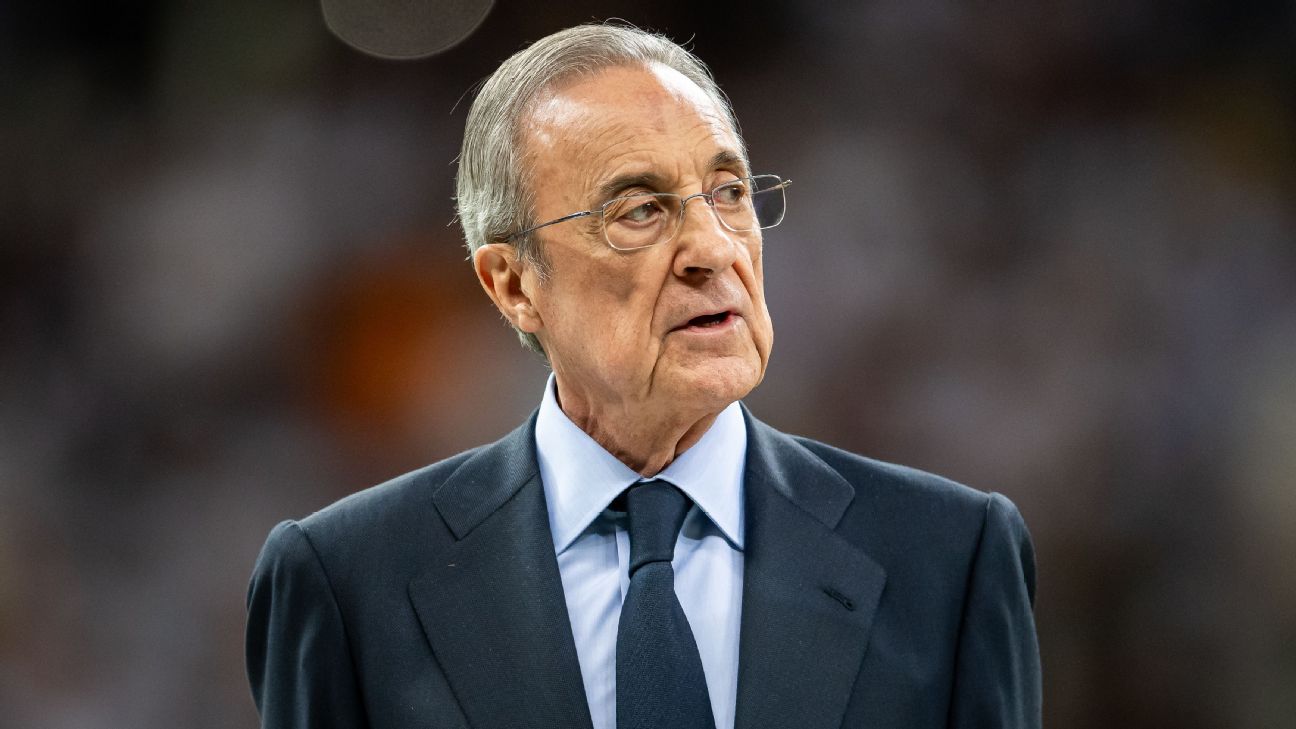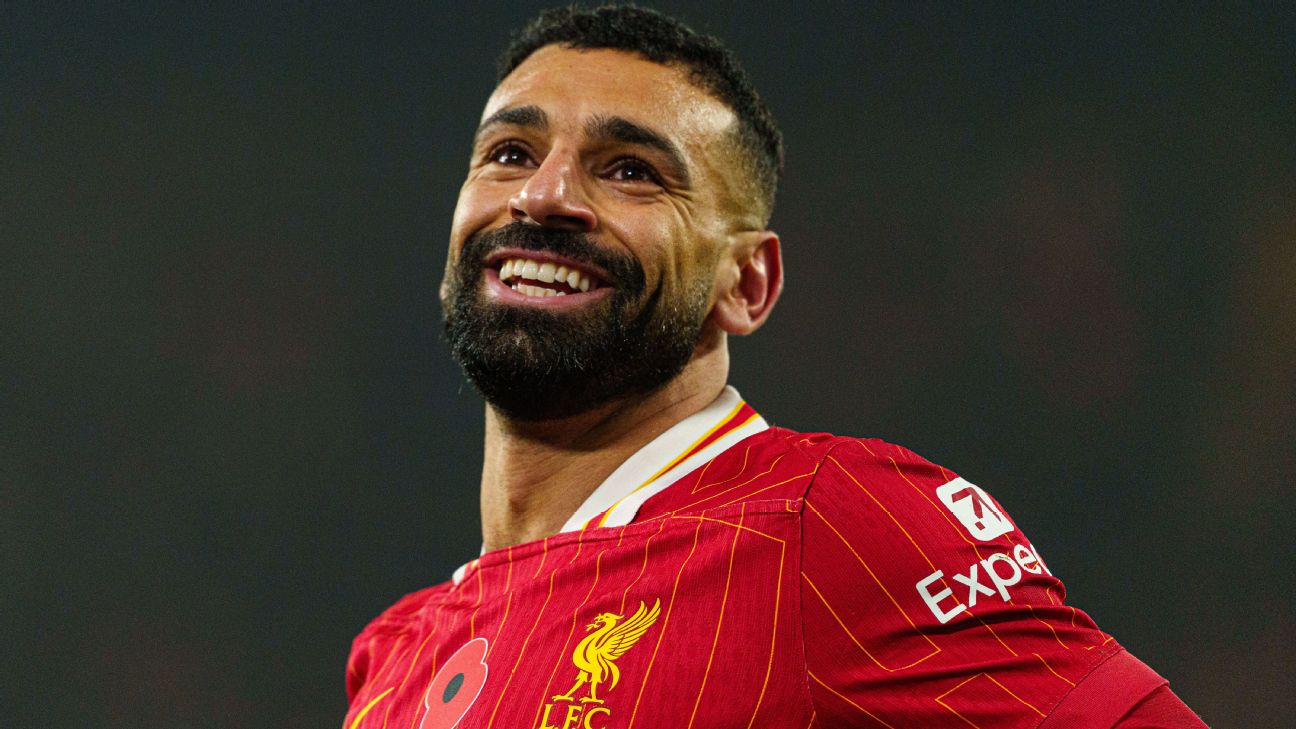MARSEILLE, France — Two days before taking charge of her first major tournament match as coach of the United States women’s national team, Emma Hayes said the age-old presumption of American dominance in this sport that many casual fans may still have is “disrespectful” and outdated.
While Hayes agreed that ambition is good, she added there needs to be a recalibration of expectations for these Olympics due to the rise of women’s soccer around the world.
The quality of opponents the U.S. faced in last year’s Women’s World Cup — when it crashed out against Sweden in the round of 16 for its earliest-ever exit — wasn’t an anomaly.
“I think one of the biggest problems is that too often is that we talk about what we’re going to do in Paris or what happens when we get to the semis and finals — I think it’s disrespectful to the rest of the world to talk like that,” Hayes said as the U.S. prepares to face Zambia in its first group stage game Thursday.
She added, “I think the game has moved to a point where that isn’t the case. It isn’t a shoo-in to get somewhere. It has to be earned and there’s no given right [to anything] … There’s top footballing nations in this tournament. I don’t think shocks in the women’s game exist anymore. I think we have to reframe our focus a little bit and have respect for the rest of the world.”
While the U.S. enters the tournament as the betting favorite at many sportsbooks to win the gold medal, much of that is likely down to historical name recognition. The U.S. is ranked fifth in FIFA’s rankings, the lowest the team has ever been. Many observers regard defending World Cup champion Spain as a stronger team than the U.S., while squads like Germany and France are undeniably stout.
The match against Zambia is a fitting example of what Hayes is speaking about. While fans who don’t regularly follow women’s soccer might see it as a mismatch, Zambia has several quality players, including Barbra Banda, who has already scored 12 goals in 12 matches for the Orlando Pride this season.
“I know what a threat she can be,” defender Emily Fox said of Banda. “Their entire team is a threat, especially with their transition. But we’re ready for it.”
Much attention has understandably been paid to the U.S. attack after a stagnant showing in the World Cup a year ago and a slow-developing start under Hayes, who took over in June. The Americans scored just a single goal in their final two warmup games before arriving in France, beating Mexico 1-0 and drawing 0-0 with Costa Rica.
Sophia Smith, who scored the goal against Mexico and is expected to partner Trinity Rodman and Mallory Swanson in the front line, said Swanson’s return from injury will offer a boost.
“She is just a ball of energy every single day on and off the field,” Smith said. “She brings the best out of everyone. She adds a different kind of fieriness to this team that we’ve maybe been missing a little bit.”
While some of Hayes’s tactical changes may take time to fully soak into the players, her push to move on from the disappointment of last year’s World Cup has been immediate.
Hayes was adamant that this team represented a new era, and the group’s “motivation isn’t about righting the wrongs.”
“We’ve moved on from last summer,” Smith said, agreeing with her coach. “It’s not something we bring back into this environment right now … We’ve learned a lot and we’ve grown a lot. We’re just looking at this tournament and not backwards because there’s really no point in doing that.”



